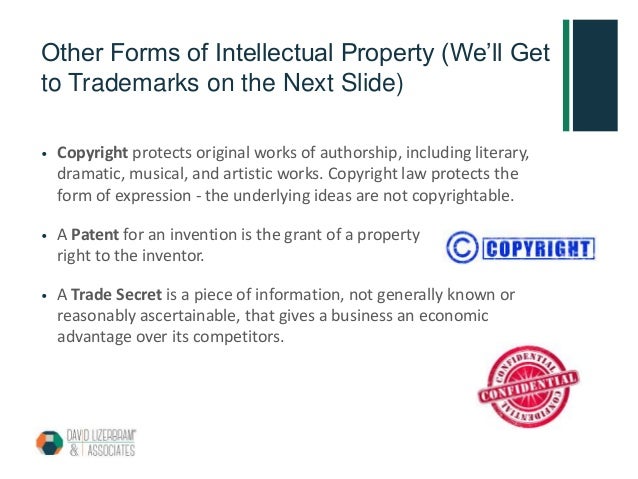Learning about the meaning of trademarks requires understanding a few basic concepts.3 min read
A trademark is an easily recognizable symbol, phrase, or word that denotes a specific product. It legally differentiates a product or service from all others of its kind and recognizes the source.
1. Definition of Trademark1 A symbol, word, or words legally registered or established by use as representing a company or product. ‘The author cites four key types of intellectual property: trademarks, copyrights, patents, and trade secrets.’. ‘Legal vigilance over brand names and trademarks is. Learning about the meaning of trademarks requires understanding a few basic concepts. The word trademark was first used between 1565 and 1575. Trademarks are used to identify a company's goods or services, and these marks can be logos, graphics, designs, symbols, and more. A secondary meaning trademark results when consumers have started to identify a trademark with a particular product over time. A descriptive mark that a business might not have been able to register initially can now achieve a trademark status because of this association. Secondary Meaning in.
2. International Trademarks
Definition of Trademark
Learning about the meaning of trademarks requires understanding a few basic concepts.

The word trademark was first used between 1565 and 1575. Trademarks are used to identify a company's goods or services, and these marks can be logos, graphics, designs, symbols, and more. The owner of a trademark can prevent unauthorized use of their intellectual property. While the chemical formula for a smell cannot be trademarked, a graphical representation of a musical note can be. A word that names a company, or a generic product name, are not considered to be trademarks.
Trademarks identify the source of a product and can also be a sign of its quality, which is why these marks are so valuable to a company's reputation. Product manufacturers can use a trademark to distinguish their goods from the competition, which helps to reduce customer confusion. In modern times, trademarks are less about identifying the source of a good and more about advertising the product itself. A Registered Trademark is a trademark that has been officially registered and is protected by trademark law. If your trademark is unregistered, it will be protected by PASSING OFF.
Trademarks exist from the first moment they are used. However, you should still consider submitting a registered trademark application with the United States Patent and Trademark Office (USPTO). Registering with the USPTO proves you own your trademark and provides you with a wide range of legal protections. If you don't intend to sell your product across state lines, you can register your trademark with the Secretary of State instead of the USPTO.
Under the Lanham Act, the first person to use a trademark is given a limited amount of protections. However, these basic protections don't equal the security that comes from registering a trademark. Registered trademarks are covered by the Trademarks Act of 1994.
After your trademark has been granted, it will last between 7 and 20 years. Trademarks, unlike patents, can be renewed in perpetuity.
International intellectual property treaties protect trademarks across the globe.
While trademarks will not expire as long as they are renewed, you can be stripped of your rights to your trademark if you don't use it frequently enough or use your mark improperly. If you keep your registration up to date and use your mark, federal trademarks will last forever. Your trademark registration can be revoked if you don't use your trademark for an uninterrupted period of five years. Trademarks must be renewed every 10 years to remain valid. Using your trademark means you are placing it on products that are actually being sold.
International Trademarks
If you want trademark protection in every country in the European Union, you can register a European Community Trademark with the Office for Harmonization in the Internal Market. The system used for Community Trademarks is similar to the United Kingdom's trademark system. However, there are some minor differences in the application process.
There are 42 international trademark classes, with each class used to identify a service or good. You can register a trademark in multiple classes, but you will only receive protections for the most relevant class for your product. It can be a good idea to hire a patent law specialist to help you search for trademarks that may be similar to your own and that would cause your registration to be rejected. If you wish to add your trademark to the trademark register, your mark must have the ability to be represented graphically.
Meaning Of Trademark In Accounting
Your trademark must possess three qualities, including:
Meaning Of Trademarking
- A distinctive design
- Attachment to the item that you are selling
- Being registered with the right trademark organization
Meaning Of Trademark Symbols
Your trademark may be rejected if it is:
Registered Trademarks List
- Not capable of being represented graphically
- Not distinctive enough
- Too descriptive
- Generic
Define Trademark
You can overcome the issue of your mark not being distinctive enough by proving that is has earned distinctiveness through regular use. Most trademarks are refused because they are too similar to an existing trademark that has either already been registered or has been submitted for registration. You can get some idea of similarities between goods and services by referencing the trademark register, but the list is not comprehensive. Some trademarks in the United Kingdom are protected based on their reputation, meaning that classes are not considered when these marks are registered.
If you need help understanding the meaning of trademarks, you can post your legal needs on UpCounsel's marketplace. UpCounsel accepts only the top 5 percent of lawyers to its site. Lawyers on UpCounsel come from law schools such as Harvard Law and Yale Law and average 14 years of legal experience, including work with or on behalf of companies like Google, Menlo Ventures, and Airbnb.
